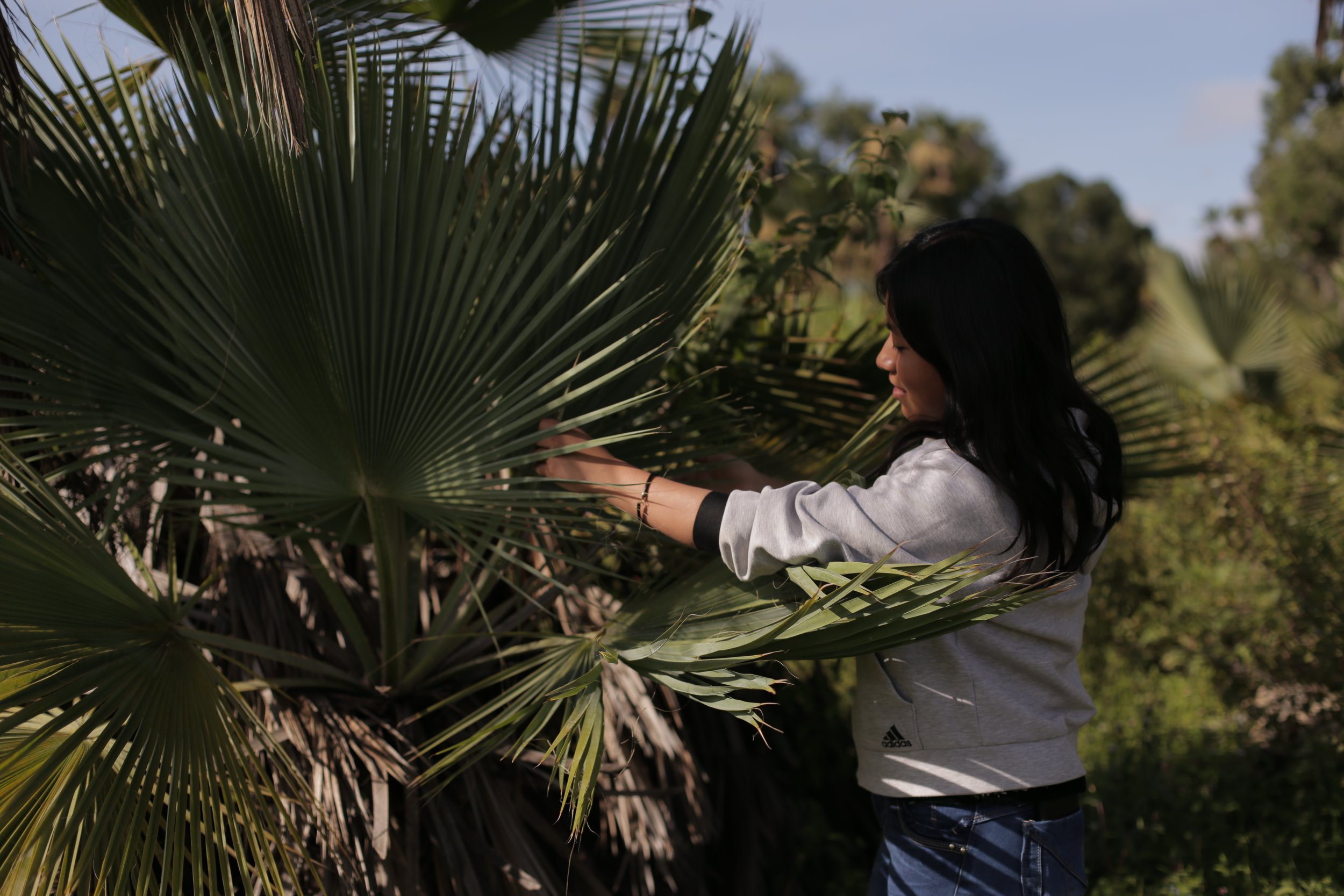Ecotourism, An Overview
A member of the Mendoza family from San Pedro Jocotipac, Oaxaca, Mexico demonstrating the palm-leaf harvesting process. // Photo Credits: C. Penn
Ecotourism, An Overview
Although the travel industry has encouraged people to get out there and experience all the beauty the world has to offer, there have been many negative side effects. International tourism is responsible for 8% of worldwide carbon emissions.
Popular travel destinations like Hawaii, have been harmed by the excess of visitors. Tourists were touching endangered species, using up limited resources like water, and polluting public spaces. This led to Native Hawaiians taking to social media and urging travelers to stay home. Examples like Hawaiii prove a need for travel that has a community first approach, practices sustainability, and reinforces conservation.
In comes ecotourism, a more responsible travel approach. The International Ecotourism Society, a non profit organization defines ecotourism as “responsible travel to natural areas that conserves the environment, sustains the well-being of the local people, and involves interpretation and education”.
The following principles guide some of the main goals that ecotourism hopes to achieve:
Conservation
This principle focuses on protecting and preserving the natural environments tourists visit. This can be accomplished by eating at restaurants that serve local foods, volunteering at a national park, or staying at an eco-lodging area instead of a chain hotel. In Costa Rica’s Central highlands, International Volunteer HQ has an Eco-Agriculture conservation project where travelers work alongside coffee farmers who promote earth friendly farming practices. Although programs like this are a great opportunity, simple things like not littering and picking up other trash you encounter help the goal of taking care of the natural environment just as well.
Community
Tourism should be used to empower local communities instead of depleting their resources. Mass tourism has proved to be unsustainable over time, not only for natural resources but community members who live there as well. As a part of a project called Sustainable Manu, a communal bio garden in Salvacion, Peru was started in hopes of providing local mothers and children with fresh produce. Volunteers can help build and nurture these gardens alongside community members. Sustainable Manu also hosts workshops on how to sell the produce so the mothers can make extra income. Travelers who help with this project are directly impacting the lives of people who live there. Before this project was started, local families relied on slash-and-burn agriculture that would then be shipped to them from far away.
Education
Education is an important part of ecotourism. Part of full immersion in travel is the process of learning what cultural values are important, being aware of native species of plants/animals, and informing yourself of relevant issues. In fact, Custom Tradition was founded on learning first and foremost from the indigenous artisan communities with whom we currently work with. It was of the utmost importance for us to know the traditions and cultures of our partner artisans before even embarking on a business partnership. It is, and continues to be important for us to listen to what members of these indigenous communities say, and also understand what they do. And, at the end of it all, efforts and genuine interest in being educated transofrms into a developed desire to protect these communities, working hand in hand with the principle of conservation.
As you plan out your next vacation, consider taking the time to research ecotourism options in your destination of choice. It is important to practice sustainable practices wherever possible. Helping local communities, caring for the environment, and learning about the area should be the norm. Ecotourism is setting a positive example of this in action.

